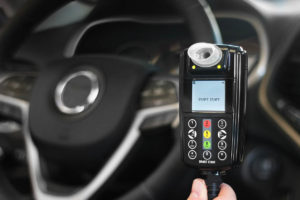Interlock Devices
The interlock program commenced in NSW in 2003 and was an attempt to reduce reoffending by drink drivers. The program is intended to provide an opportunity for drink drivers to rehabilitate themselves and to shorten their disqualification period.
The program provides an alternative to lengthy licence disqualifications whereby the period of disqualification can be reduced if the driver agrees to have an interlock device attached to their vehicle. The device is a breath tester that is attached to the car’s ignition. The car cannot start unless the driver passes a breath test.
This alternative is available in relation to PCA offences but is not available to habitual traffic offenders.
Participation in this program is entirely voluntary and the court cannot force the offender to undertake the program.
Traffic offender intervention program
Prior to sentencing a traffic offender a court may refer the offender to participate in the traffic offender intervention program. The objective is to provide offenders with the information and skills necessary to change their attitude towards driving and their driving behavior and develop safer driving behavior in traffic offenders.
In determining whether a traffic offender is suitable for participation in the program the court is to have regard to the following factors:
– The offender’s character, antecedents, age, health and mental condition and whether these would likely prevent the offender’s participation or disrupt the conduct of the program
– The nature of the offence for which the offender has been convicted, including any extenuating circumstances in the commission of the offence
– The impact of the offence on the community and any victim or victims
– The offender’s traffic history and the nature and seriousness of any previous offences
The court will generally take into account the fact that the offender has completed the program when it comes to sentencing and if the offender has completed the program and received a positive report they are likely to receive a more lenient sentence than would have been expected in the absence of the program being completed.
Participation in this program is entirely voluntary and the court cannot force the offender to undertake the program.








